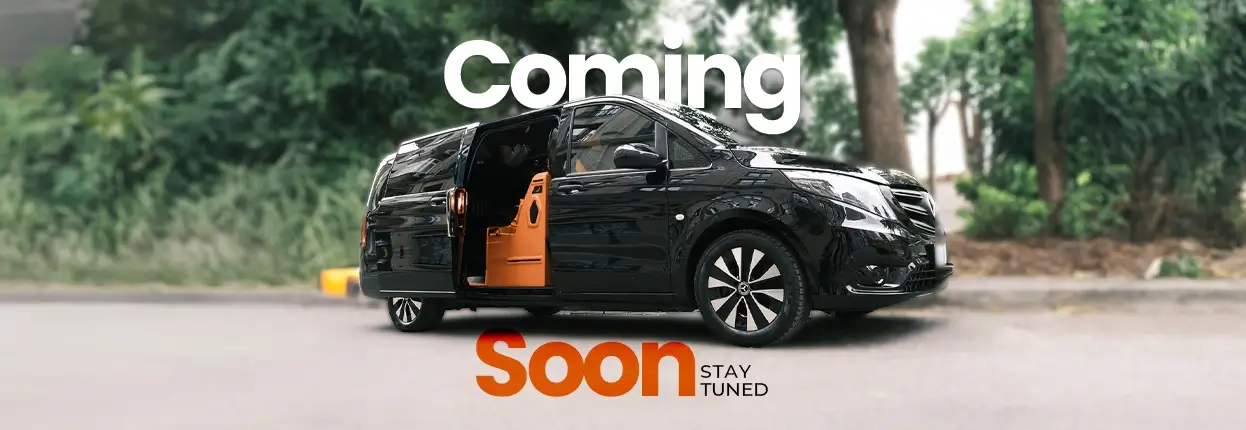Salvador
Salvador Travel Guide
Salvador, the capital of Bahia state in Brazil, is a city rich in history and culture. It was the first capital of Brazil and served as a crucial port for the sugar and slave trades. This historical significance has shaped Salvador into a vibrant cultural hub, particularly known for its Afro-Brazilian heritage.
Salvador serves as an economic center for Bahia state, with its port facilitating trade and tourism. The city offers vibrant festivals, culinary delights, and historical architecture making it a unique destination within Brazil and beyond.
Things To Know Before Going To Salvador
- Acarajé is a street food and a must-try destination
- Salvador is known for its vibrant music scene, particularly during Carnival
- Pelourinho is a district that was once the center of the slave trade in Brazil
- The sun can be intense, especially during the summer months
- Be prepared for mosquitoes, particularly during the rainy season
- Public transportation is available but limited
- The Mercado Modelo is a bustling market with handicrafts, souvenirs, and local delicacies.
- When visiting religious sites or participating in local traditions, dress modestly and be respectful of the customs and practices observed by residents
- Salvador boasts beautiful beaches along its coastline
Where Is Salvador?
Salvador is located in the northeastern region of Brazil, in the state of Bahia. It is situated on a peninsula overlooking the Atlantic Ocean.
Where To Stay In Salvador?
| District | Best For | Best Attractions | Average Trip Cost |
| Barra | Beaches and Safety | Farol da Barra (Barra Lighthouse), Praia do Porto da Barra | Moderate |
| Itapuã | Beach Relaxation | Itapuã Beach, Vinicius de Moraes' House | Moderate |
| Pelourinho | Culture and History | UNESCO World Heritage Site, colorful colonial architecture, live music | Low to Moderate |
| Rio Vermelho | Nightlife and Dining | Mercado do Peixe, Casa de Tereza | Moderate to High |
| Santo Antônio | Local Experience | Small shops, colorful houses, views of Bahia de Todos Santos | Low to Moderate |
Best Hotels In Salvador
This is a table of the best hotels in Salvador across various districts, showcasing their affordability and reasons to stay there.
| Hotel | District | Affordability | Why To Stay There? |
| Pousada Bahia Pelo | Pelourinho | Budget | A charming guesthouse with friendly staff, located near major attractions and offering a cozy atmosphere. |
| Bahiacafé Hotel | Pelourinho | Mid-Range | Offers modern amenities in a historic setting, perfect for exploring Salvador's cultural sites. |
| Hotel Deville Prime Salvador | Itapuã | Luxury | Features upscale accommodations, a beautiful pool, and is close to the beach, ideal for a relaxing getaway. |
| Novotel Salvador Hangar Aeroporto | Near Airport | Mid-Range | Conveniently located near the airport with modern facilities and a restaurant, making it great for travelers. |
| GIRASSOL Praia Hotel | Flamengo Beach | Budget | Affordable beachfront hotel with easy access to local attractions and a relaxed atmosphere. |
| Hotel Pestana Convento do Carmo | Santo Antônio | Luxury | A unique hotel set in a restored convent, combining history with luxury and offering stunning views of the bay. |
| Mercure Salvador Rio Vermelho | Rio Vermelho | Mid-Range | Located in a vibrant neighborhood known for nightlife and dining, with modern amenities and ocean views. |
Best Salvador Attractions
Here’s a bullet list of the best attractions in Salvador, Brazil:
- Largo do Pelourinho: The historic heart of Salvador, known for its vibrant atmosphere, colonial architecture, and cultural events, especially during Carnival.
- Museu Afro-Brasileiros: A museum dedicated to Afro-Brazilian culture, showcasing artifacts and exhibits related to Candomblé and the Orishas.
- Balé Folclorico da Bahia: A renowned dance company that performs traditional Bahian dances, celebrating the region's African heritage through music and movement.
- São Francisco Church and Convent: A stunning example of baroque architecture, famous for its richly decorated interior with gold leaf and intricate carvings.
- Elevador Lacerda: An iconic urban elevator connecting the city's upper and lower parts, offering breathtaking views of All Saints Bay.
- Farol da Barra (Barra Lighthouse): A historic lighthouse with panoramic views, located near one of Salvador's best beaches and a popular spot for sunset watching.
- Mercado Modelo: A bustling market where visitors can buy local crafts, and souvenirs, and enjoy traditional Bahian food in a lively atmosphere.
- Igreja do Senhor do Bonfim: A famous church known for its colorful ribbons tied to its gates, representing wishes and prayers made by visitors.
- Praia do Porto da Barra: A beautiful beach ideal for swimming and sunbathing, popular among locals and tourists alike for its clear waters and vibrant atmosphere.
- Casa do Carnaval do Bahia: A museum dedicated to the history of Salvador's Carnival, featuring costumes, music, and interactive exhibits about this vibrant festival.
Is Salvador Safe For Tourists?
Salvador has a complex safety landscape for tourists. While Salvador is known for its vibrant culture and attractions, it has a reputation for crime, particularly in certain areas. It is recommended not to walk around at night.
Like many urban areas, petty crime such as pickpocketing and purse snatching is happening. Additionally, public transportation can be risky due to petty crime. Tourists should prioritize their safety by staying informed, being cautious, and following local advice.
Is Salvador Expensive?
Salvador is considered to be an affordable destination compared to many other cities in Brazil and Latin America. Salvador is ranked as the 3rd cheapest city in Brazil and is more affordable than 76% of cities in Latin America and 89% of cities worldwide.
Currency Of Salvador, Brazil
The currency used in Salvador, Brazil, is the Brazilian Real (R$). currency exchange services are available at banks, exchange bureaus, and some hotels. Credit and debit cards are widely accepted in most hotels, restaurants, and shops.
Spoken Language In Salvador
The primary spoken language is Portuguese. The local dialect, Brazilian Portuguese, has unique accents and colloquialisms. While Portuguese is dominant, English is increasingly taught in schools and spoken in tourist areas, particularly among younger people and hospitality workers.
How Many Days Are Enough To Visit Salvador?
For visiting Salvador, Brazil, 3 to 5 days is generally considered sufficient to explore the city’s main attractions and experience its rich culture.
When Is The Best Time To Stay In Salvador?
The best time to visit Salvador, Brazil, is generally considered to be from December To February.
| Season | Temperature (°C/°F) | Activities | Rates | Crowd | Clothing |
| Summer | 24°C to 30°C (75°F to 86°F) | Beach activities, Carnival events | Higher rates due to peak season | High due to Carnival and holidays | Light clothing, swimwear, sun protection |
| Autumn | 23°C to 28°C (73°F to 82°F) | Cultural festivals, sightseeing | Moderate rates | Moderate | Light clothing, and layers for cooler evenings |
| Winter | 22°C to 27°C (72°F to 81°F) | Indoor attractions, local markets | Lower rates | Moderate | Light clothing, possibly a light jacket for cooler nights |
| Spring | 24°C to 29°C (75°F to 84°F) | Outdoor activities, beach visits | Moderate rates | Increasing crowd as summer approaches | Light clothing, swimwear |
What To Pack For Salvador Trip?
Clothing
- Lightweight and breathable fabrics
- Swimwear
- Comfortable footwear
- Light jacket or sweater
Accessories
- Sunglasses
- Hat
- Reusable water bottle
- Beach towel and bag
Toiletries
- Sunscreen
- Insect repellent
- Personal hygiene items
Travel Essentials
- Travel guide or map
- Camera or smartphone
- Power adapter
Health and Safety
- First aid kit
- Travel insurance information
Optional Items
- Lightweight backpack
- Snorkeling gear
Salvador Cuisine
Salvador’s cuisine is a vibrant mix of indigenous and Spanish influences, characterized by its use of corn, pork, and seafood. Here are some essential dishes and beverages to try when experiencing Salvadoran cuisine:
- Pupusas: Thick handmade corn tortillas stuffed with cheese, chicharrón (fried pork), refried beans, or vegetables, often served with curtido (pickled cabbage slaw) and salsa roja (tomato sauce).
- Pollo Guisado: A flavorful stewed chicken dish typically served with rice and beans.
- Yuca Frita: Deep-fried cassava root served with curtido and often accompanied by chicharrón.
- Sopa de Pata: A hearty soup made from cow's feet, tripe, cassava, and various vegetables, seasoned with herbs and spices.
- Ceviche de Camarones: Lime-cooked shrimp mixed with tomatoes, onions, and cilantro, often served as an appetizer.
- Tamales: Corn dough filled with meats or vegetables, wrapped in banana leaves, and steamed.
- Bistec Encebollado: Pan-fried beef steak marinated with spices and served with caramelized onions.4
- Empanadas de Leche: Sweet pastries filled with milk or cream.
- Tres Leches Cake: A moist cake soaked in three types of milk.
- Pastelitos de Piña: Pineapple-filled pastries that are sweet and flaky.
- Atol de Elote: A warm sweet corn drink made from ground corn, milk, cinnamon, and sugar.
- Tic Tac: A traditional sugar cane liquor that is popular in Salvador.
Nightlife In Salvador
Salvador offers a vibrant nightlife scene that caters to a variety of tastes and preferences. Here are some key highlights of the nightlife in Salvador:
- Pelourinho: The historic center comes alive at night with street performances, live music, and cultural events. Popular spots include Praça Quincas Berro D'Agua and Largo Pedro Archanjo, where you can enjoy local music and dance.
- Rio Vermelho: This neighborhood is known for its lively atmosphere, featuring numerous bars, clubs, and restaurants. It's a hotspot for both locals and tourists looking to enjoy live music and dance.
- Amsterdam Pop Club: A popular venue in Rio Vermelho known for its energetic atmosphere and diverse music styles, it opens late into the night.
- Boomerangue: A two-story club that combines live music with a dance club vibe, often featuring different bands and DJs.
- Teatro Castro Alves: For those interested in the performing arts, this theater hosts concerts, ballets, and other cultural events throughout the year.
- Lotus Club: An upscale venue where you can rub shoulders with celebrities while enjoying a mix of pop, hip-hop, and dance music.
- Groove Bar: Known for its live rock music, this bar features cover bands and original acts, particularly on Thursdays and Fridays.
- Terça da Benção: A popular Tuesday night event in Pelourinho where locals gather for music and festivities after a traditional church service.
- Bar da Ponta: Offers stunning views of the Bay of All Saints along with a modern ambiance, attracting a younger crowd.
- Cultural Events: Throughout the year, Salvador hosts various cultural festivals and events that contribute to its vibrant nightlife. The city is known for spontaneous street parties that often feature music, dance, and local cuisine.

